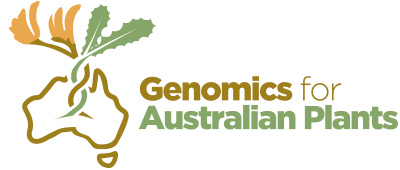Workshop materials
A series of three interactive in-depth workshops were developed by the GAP Phylogenomics Bioinformatics Working Group for the Australasian Systematic Botany Society 2021 conference. All workshop materials are provided as training resources for the analysis of target capture sequence data for phylogenomics projects and can be accessed from the ASBS 2021 workshops Zenodo community page. Further details on the materials available for each workshop are outlined below:
Onboarding – outlines the installation of software used in the workshops
Onboarding worksheet: https://doi.org/10.5281/zenodo.5068981
Workshop 1: GAP phylogenomics bioinformatic pipeline – part 1: HybPiper and tree reconstruction in IQ-TREE
The workshop demonstrates a user-friendly Nextflow pipeline based on the HybPiper software for the assembly of raw reads of target capture / target enrichment data and the interpretation of its results. This workshop assumes software has been installed as outlined in the onboarding worksheet.
Workshop 1 materials: https://doi.org/10.5281/zenodo.5058506
Workshop 1 worksheet: https://doi.org/10.5281/zenodo.5072399
Workshop 1 presenter slides: https://doi.org/10.5281/zenodo.5081570
Workshop 1 recording: Coming soon…
Workshop 2: GAP phylogenomics bioinformatic pipeline – part 2: Yang and Smith paralogy resolution
Paralogy is the existence of several variants of the same gene in one species that are derived from gene or genome duplication events. If paralogs from different species are analysed together in the same alignment, they may mislead phylogenetic inference. The workshop will demonstrate a user-friendly Nextflow pipeline implementing the paralogy resolution approaches of Yang & Smith (2014). They comprise four different ways of using gene tree topologies to identify ortholog groups for each gene, with varying degrees of stringency. This workshop assumes some background knowledge covered in the webinar “Conflict in multi-gene datasets: why it happens and what to do about it – deep coalescence, paralogy and reticulation“, that software has been installed as outlined in the onboarding worksheet, and completion of Workshop 1 (or familiarity with HybPiper).
Workshop 2 materials: https://doi.org/10.5281/zenodo.5059534
Workshop 2 worksheet: https://doi.org/10.5281/zenodo.5075176
Workshop 2 presenter slides: https://doi.org/10.5281/zenodo.5083827
Workshop 2 recording: Coming soon…
Workshop 3: HybPhaser – Detection and phasing of hybrid accessions in a target capture dataset
Hybrids (and polyploids originating from a hybridisation event) contain divergent alleles that can introduce conflicting signals in phylogenetic analyses. Separating the divergent reads according to their haplotypes can reduce the phylogenetic conflict and provide insights into past reticulation events. This workshop will explore the workflow HybPhaser, which can detect hybrids in target capture datasets and phase hybrid accessions to reveal their parental lineages. We will demonstrate the application of the workflow on a test dataset and compare phylogenies with and without hybrid phasing. This workshop assumes some background knowledge covered in the webinar “Detection and Phasing of hybrid accessions in a target capture dataset”, software has been installed as outlined in the onboarding worksheet and completion of Workshop 1 (or familiarity with HybPiper).
Workshop 3 materials: https://doi.org/10.5281/zenodo.5118041
Workshop 3 worksheet: https://doi.org/10.5281/zenodo.5118055
Workshop 3 presenter slides: https://doi.org/10.5281/zenodo.5750988
Workshop 3 recording: Coming soon…
